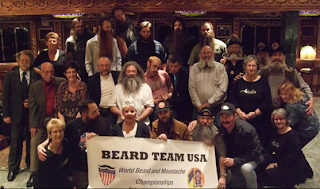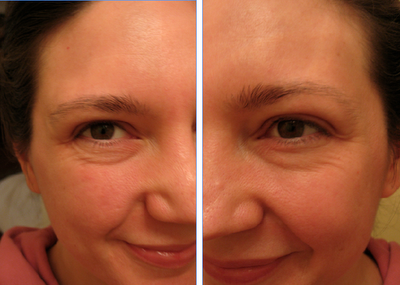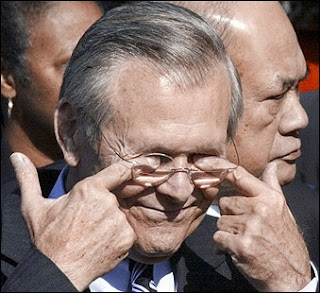So I dipped my toes into my
no-makeup-for-a-week resolution by trying on All Natural Day, author
Rosie Molinary's body-image challenge. The rules: from 6 a.m. to 6 p.m., nothing unnatural. No makeup, no hair products, no flatirons/curlers/etc. My reaction:
1) I became hyperaware of the ways in which I use various tools at my disposal. I had an uncharacteristic urge to wear perfume (also a no-no) because I felt so unadorned. I wore tights with a wild print; my updo was more teased than usual. (Teasing is natural, right?) I wonder if that's actually an odd sort of marker of self-confidence: While I do wear makeup every day to conceal flaws, when I was stripped of it I realized that I really
do use makeup to enhance what's there already and had to find compensatory ways to showcase what's already there. Before I started this blog I would have taken a vaguely lazy route of assuming that was because I didn't trust that what is already there was "enough," and maybe that is part of it. But wearing makeup
doesn't actually significantly change how I look; it just livens me up, tidies me up a bit, makes me feel a bit more vibrant, like fine-tuning an equalizer on a stereo so that the vocals come through more clearly.
2) I dressed up so that I wouldn't be tempted to "hide." Part of Rosie's direction specified not "dressing down," knowing that her students would be tempted to just throw on a pair of sweats to complete the just-rolled-out-of-bed look; they were to dress as they normally would. (Though don't college students go to class in pajamas? Or was that just the '90s?) I was planning on wearing my usual uniform of jeans and a sweater—but I took on the challenge to dress up a bit, because I was worried I'd just want to hide without "my face" on.
So I wore a black wool dress with the wild tights and wellies—and got more compliments on how I looked than I have in the past month. I'm not particularly into fashion, so pushing myself into doing something that, for me, was just a shade daring made me think about self-presentation. I think it's fun to put together a look that includes both clothing and makeup, and I love the feeling of being appropriate to the occasion. But my "occasion" was going to the office, not a grand ball; to look appropriate can totally mean wearing a body-conscious but conservative outfit, and nothing on my face. It was freeing to see that I didn't have to "match" as strictly as I'd previously believed.
3) I felt a bizarre (and probably one-sided) kinship with the men in my office. I kept hearing something Annika Connor said in our interview: "I sometimes feel bad for men. They don't get to wear cover-up! That must suck! They just have to look how they look." Yeah, well, me too. With the men I actually work with I didn't feel any different, but with men who just work on my floor and with whom I simply exchange coffee-machine banter, I sort of felt like we were on the same playing field.
I hadn't felt like we were on different playing fields before, of course. Casual relationships like those are formed on impressions; I don't know the names of most of the people on my floor, let alone any personal information about them. It's Dude With Tan, or Guy Who Always Puts Ice In His Water, or Man Who Helped Me Open A Quart Of Half-and-Half. (Am I alone in not being able to open a carton of milk properly?) And in those casual relationships, I guess without realizing it I was counting on a certain workplace dynamic: Introducing Autumn in the role of a younger-than-most-men-there woman who has an easygoing smile, playing opposite Dude With Tan who doesn't mind a little moment of respite from crunching ad sales numbers. I'm not a workplace flirt, but I'm also aware of what any social-ish interaction brings in regards to gender.
But on Friday, I found myself actually
less aware of that potential dynamic, instead asking more genuine questions or just feeling more comfortable in silence. I felt more laid-back, less invested in bringing a bit of lady-with-lipstick vibe to these pseudosocial exchanges. I don't particularly like what that says about how I'd maybe been unwittingly treating such encounters.
4) I was surprised—no, shocked—to find that I really didn't feel more self-conscious. I fully expected that it would be on my mind when I talked with coworkers; instead, it really only crossed my mind in interactions when a colleague mentioned that she had actually worn more makeup than usual that day, just for fun. I was far more self-conscious when I was on the other end of the spectrum for my makeover. I suppose that shouldn't be surprising; certainly my face is transformed a negligible degree with my everyday makeup when compared to the difference between my everyday makeup and my bombshell look. But I expected to find that I relied much more on makeup as a crutch than it turns out I actually do—I thought it would color every aspect of my day, but it didn't.
I got an unexpected invitation to a dinner party that night, though—and it didn't cross my mind to keep the natural look. I had enough makeup rolling around in my purse to approximate my normal look, and I even took a trip to the drugstore to get what I was missing. Even there, I thought I'd be disappointed in myself for not keeping my natural look all the way through, but in fact I was able to appreciate my nighttime lipstick and mascara as a sort of transformation from day to night, from noontime sun to evening mystery. I didn't look much different than I would have any day of the week—but because I was doing it for night only, it took on a ritualistic aspect, giving me time to just think through what I hoped this dinner might bring. It gave me time to put on my "game face"—a face that is, after all, still mine.
Overall, this was an affirming experiment—but not only for the reasons I thought it would be. It felt good to let the world see my face as-is, with no apologies; I didn't feel any more or less confident, but I suppose the fact that I
didn't feel less confident without my makeup crutch means my confidence reserves aren't depleted. But the biggest thing it did for me was show me, yet again, that my relationship with makeup doesn't have to be either/or. It doesn't have to be just about concealing flaws, or about having some wild sense of play. I know it might seem backward, but I think a lot of makeup I wear
is actually to make me feel more like myself. I like bronzer because it makes me look like I've gotten more sun than I have—not because it looks sexy but because I'm happiest when I'm able to get some light. I like mascara because it helps me look alert even when I'm not quite there yet; I wear concealer yes, to conceal flaws, but also because it can help me mimic skin that doesn't show the signs of workaday stress, stress that's unnatural and isn't something I actively want to own.
I don't know if this is the effect that Rosie had in mind when she issued her challenge; she's not anti-makeup, but I'm guessing that the idea was to feel more comfortable in one's own skin at all times, in its organic state. I don't know if it did that, though I don't doubt that this is a part of getting there. I just know that it's sort of a relief to find that perhaps I've already done more work on reconciling my conflicting attitudes toward beauty and its accoutrements than I'd realized.























